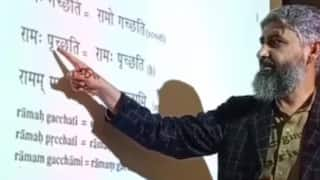Supreme Court Rejects PIL For Registration Of Live-In Relationships, Calls It 'Hare-Brained' Petition
Describing the plea "just a hare brained petition", the court rejected it.

The Supreme Court on Monday expressed astonishment at a petition filed demanding obligatory registration of live-in couples, LiveLaw reported.
The bench, which included CJI DY Chandrachud, Justice PS Narasimha, and Justice JB Pardiwala, questioned whether the petitioner was attempting to discourage live-in relationships under the pretence of nurturing their security by demanding obligatory registration.
CJI DY Chandrachud inquired right away: "What is this? People come with anything here? We'll start imposing costs on such cases. Registration with whom? The Central Government? What does the Central government has to do with people living in live in relationships? Are you trying to foster the care, the security of these people or trying to prevent them from getting into live in relationships?," LiveLaw reported.
Describing the plea "just a hare brained petition", the court rejected it.
Attorney Mamta Rani filed the case, which asked the Central Government to develop laws for the registration of live-in relationships.
According to the petition: "Time and again this Hon’ble Court has been the protector of the live-in partners and has passed numerous number of judgments which is having the effect of giving protection to the members of the live-in partnership be it the women, men or even the children born out of such relationship."
It claimed that because there are no regulations or procedures governing live-in relationships, there has been a significant increase in crimes committed by live-in partners, including grave crimes such as rape and murder. In this regard, the petition mentions recent examples in which women were reportedly murdered by their live-in boyfriends, such as the Shraddha Walkar case.
According to the petitioner, registering a live-in relationship would result in correct information about each other being available to both live-in partners as well as the government on each of them regarding their marital status, criminal background, and other important facts.
The PIL requested not only the passage of legislation governing live-in relationships, but also a directive to the Central Government to establish a data bank to determine the precise number of persons engaging in live-in relationships in our nation. It contended that only obligatory registration of live-in partnerships could accomplish the same result.
According to the petition, the Central Government's inability to register live-in partnerships violated Articles 19 and 21 of the Constitution.






































